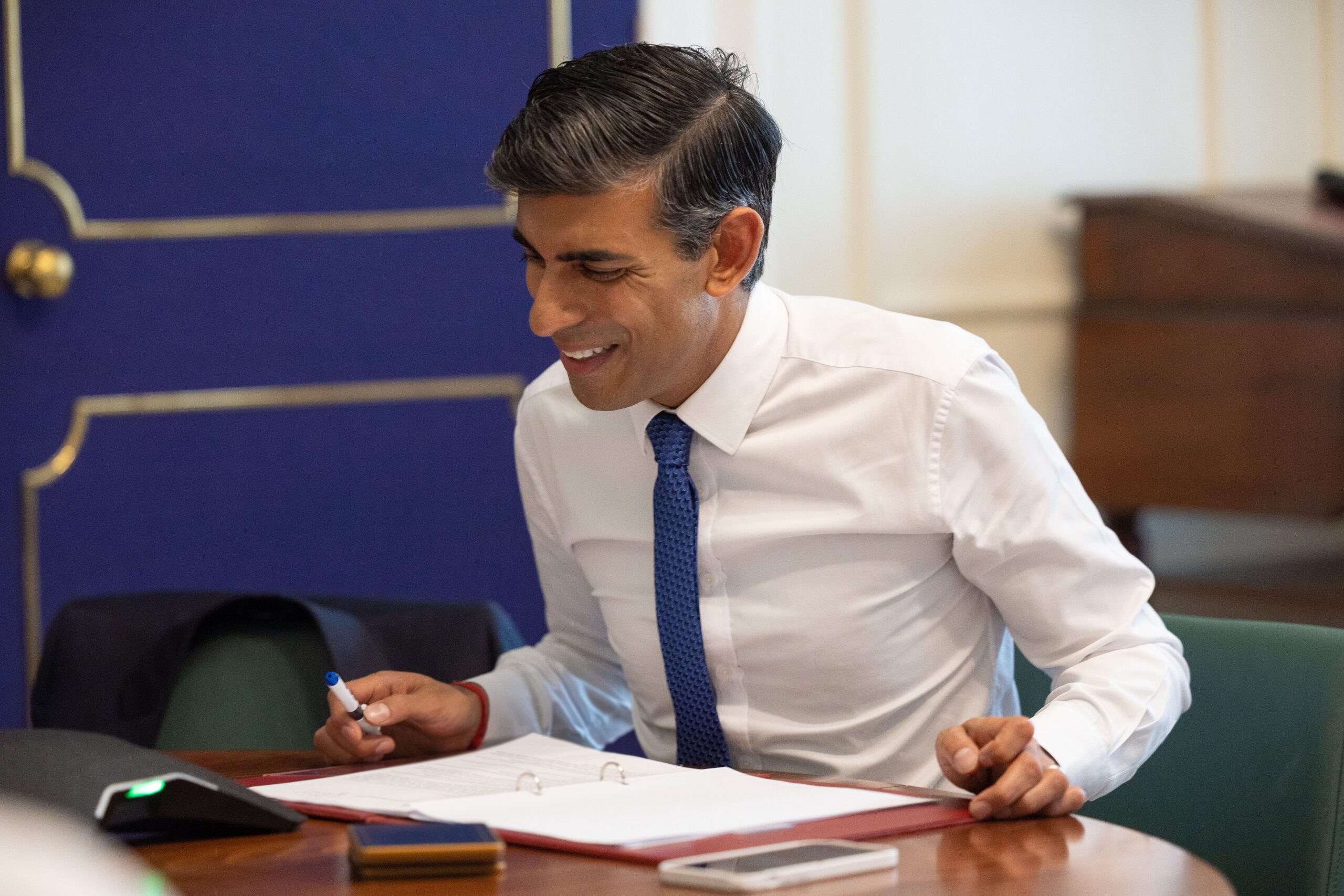Rishi Sunak, the newly appointed Prime Minister of the United Kingdom, has proven that an MBA graduate has unlimited potential to ascend to the world’s top leadership positions.
Mr Sunak MBA ’06 became the U.K.’s new prime minister last week. But 16 years ago, the conservative party leader was across the pond from 10 Downing Street, earning his MBA at Stanford’s Graduate School of Business (GSB).
The 42-year-old is both the youngest and first non-white prime minister in the country’s history. He was selected as the result of a five-day leadership election to succeed Liz Truss after her Thursday resignation.
Born to parents of Indian descent, Sunak grew up in Southhampton before attending Lincoln College at Oxford University to study Philosophy, Politics and Economics (PPE). After graduating from Oxford, Sunak was awarded a Fulbright scholarship to study business at Stanford.
The Prime Minister described Stanford as “a home of entrepreneurship, creativity [and] innovation” and said that studying here “changed his life” in a June 2021 Facebook post. Beyond his academic experience at Stanford, he also met his wife, fashion designer Akshata Murty, at the Graduate School of Business.
When asked about his time at Stanford during his initial run in August, most GSB deans and professors told The Guardian they did not have many personal memories of Sunak. Banking and finance emeritus professor James Van Horne, who taught Sunak corporate finance, told The Guardian that he was “a good student and participated well.”
GSB Associate Dean for External Relations Derrick Bolton, who worked as assistant dean for MBA Admissions during Sunak’s years, told The Daily that when he heard the news, he was “not surprised.”
“It’s completely in line with the person we admitted to the GSB nearly 20 years ago. [He] was quite accomplished with keen intellect and deep commitment to service,” he wrote in an email.
He said he believes that Sunak’s GSB peers likely helped prepare him for this role.
“As students and especially as alumni, [they] help hold you accountable for becoming the best version of themselves,” he wrote.
His reputation for service has not faded in the last two decades, according to one current student with more recent memories of him. After working for the Conservative Party in Parliament during her gap year, Romy McCarthy ’25 was contacted by Rishi Sunak’s campaign team in August to help with his leadership campaign.
“I already had a lot of respect for him as a self-made person of color who had risen up through the ranks of British politics without any familial connections,” she wrote in an email.
Yacoub Yasin ’25, who was born and raised in London, echoed, “It’s really cool to see a South Asian in a position of power, particularly as the PM.”
“It’s a big step in the right direction for people of marginalized communities and hopefully a move towards the first Black PM, just like the USA,” he said.
This opportunity to participate in this historical candidacy inspired McCarthy to give her free time this summer to Rishi’s campaign. Her main role in campaigning was contacting Conservative Party members over the phone to ask if they had voted and if they had any concerns with his candidacy, which she worked to address. She said working on the campaign was “one of the most surreal periods of her life.”
Sunak, she said, “always made the effort to engage with everyone working on his campaign.” The two bonded over their time on Stanford’s campus.
Though his initial bid for Prime Minister was unsuccessful — party members selected Foreign Secretary Liz Truss to replace Boris Johnson — he was later appointed leader of the Conservative Party. Accordingly, when Johnson dropped out of the race. His only other challenger, Penny Mourdant, announced that she had not gathered enough support and threw her full support behind him.
After weeks of being disappointed with the “political carnage” that Truss’ premiership brought to the nation, McCarthy woke up to the news of Rishi’s win.
“I am genuinely so relieved and so proud, but also frustrated as this is the decision that should have been made in the first place,” she wrote.
McCarthy believes his premiership will reestablish the “stability” that she believes Britain “needs right now.”
“I worry about people who are less fortunate than me back home who are affected by the cost of living crisis, the poor exchange rate and the overall lack of economic stability, but I trust that Rishi has a plan,” she wrote.
Liz Truss’ premiership, the shortest in the country’s history, plunged the country into economic chaos after she announced the largest tax cuts in the last fifty years (a policy that was reversed not three weeks later). The value of the pound plummeted and the costs of government borrowing skyrocketed.
Though Rishi Sunak has been painted as a moderate-right politician, there is reason to believe he is further right than Boris Johnson. He has been criticized for his willingness to significantly cut pay for key workers and core services that Britain relies on to function. His hardline views on British immigration have also been condemned as hypocritical as the grandson of an immigrant.
But McCarthy believes that as “someone who was not born into wealth [and] understands the plight of those less privileged than him,” Rishi is the person to put Britain “on the mend.”
“For the first time, there is hope for British politics,” she wrote.







